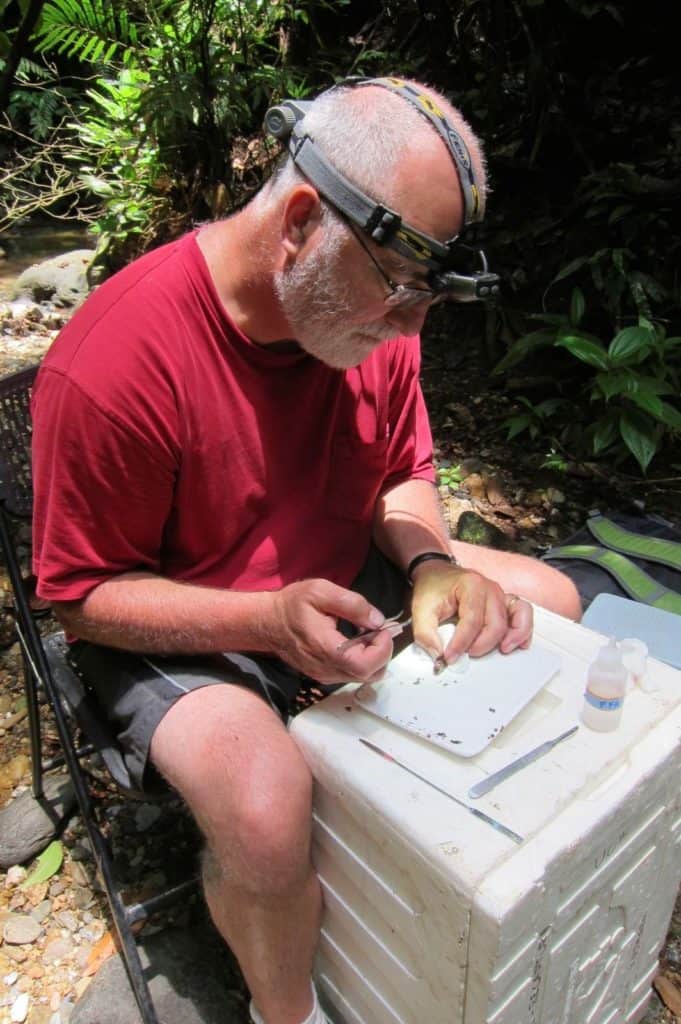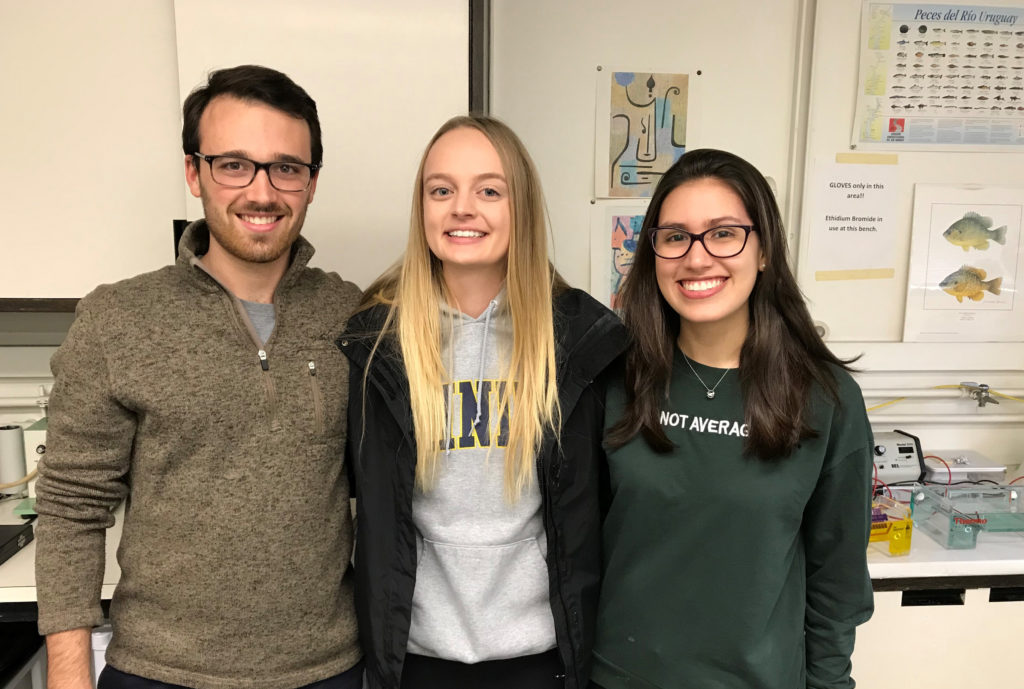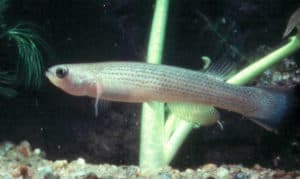Trinity Biology Professor and Alumni Co-Author Paper Published in International Scientific Journal
Research by Trinity College Professor of Biology Kent Dunlap and two of his former students was published last month in one of the world’s oldest scientific journals, the London-based Proceedings of the Royal Society B.

The paper—which Dunlap co-authored with research students Josh Corbo ’19 and Margarita Vergara ’19, along with collaborators from the University of Texas at Arlington—reports that killifish in Trinidad that live with predators in their environment grow more brain cells than those that face no predators. The study was highlighted recently by the science and technology magazine New Scientist.
The researchers studied the brains of fish that are separated into distinct populations by waterfalls along streams. “The killifish living downstream live among predatory fish, while the fish upstream do not,” said Corbo, who double-majored in biology and philosophy at Trinity and is now a Cancer Research Training Award (CRTA) Fellow at the National Cancer Institute. “Our central question was: how does negative stimuli—predation—in the environment affect the rate of brain cell proliferation? The implication of our research reaches much farther than the Northern Mountain Range of Trinidad. The topic of how the environment we live in affects our health concerns many disciplines, from public health to sociology. Our research draws more attention to our understanding of the relationship we as organisms have with our environment.”

Dunlap first traveled to Trinidad with the college’s Trinity in Trinidad program and found the freshwater killifish to be a good subject for his work on brain cells. “The Dana Foundation supported my research and the Trinity in Trinidad program was very helpful with the logistics,” said Dunlap, who has previously researched the production of brain cells in electric fish. When Dunlap brought specimens back to campus to study, Corbo and Vergara got to work. “They were motivated, engaged students who really took ownership in the lab and were excellent lab scientists,” Dunlap said. “They were curious and capable and a delight to work with.”
Vergara, who completed a major in biology and a minor in Italian at Trinity and is now earning a master’s in clinical embryology at the University of Oxford, said that she and Corbo sectioned brain tissues and conducted a procedure called immunohistochemistry to quantify the formation of new brain cells. “Professor Dunlap also allowed us to revise and provide constructive feedback for the manuscript that was submitted for publication,” Vergara said.

Corbo added, “It was a great experience to see a paper from start to finish as an undergraduate, as such an experience is usually gained while in graduate school.” Corbo spent a summer working in the lab through Trinity’s Summer Research Program and now attributes much of his ability as a researcher to the skills he learned as an undergraduate research student. “Professor Dunlap emphasized that your research will not matter if you cannot talk about it. Nothing has been truer,” Corbo said. “During lab meetings, we would have random research presentations for which he would decide who the audience was; it could be a novice, a biology student, or an expert in the field. The task was to present your research in the most clear and concise manner. That was the most important lesson I learned during my time in the lab.”
Trinity students have the opportunity to begin research work early in their undergraduate careers and build strong connections with faculty members. Vergara, who first worked in Dunlap’s lab as a sophomore, said, “I believe that the most valuable benefit of conducting research as an undergraduate is not only the practical skills that you learn along the way, but the relationships that you get to establish with your professor and lab mates. Professor Dunlap also supervised my thesis project, became a real mentor who advised me when I needed to make important career decisions, and taught me lessons that will always stay with me after graduating from Trinity.”
For Vergara, the experience of working on research with Dunlap sharpened her problem-solving skills, strengthened her proficiency as an academic writer and critical thinker, and allowed her to develop new technical expertise. “More importantly,” she said, “it allowed me to gain a balance between independence and collaboration. I learned the importance of asking questions, making decisions as a group, and communicating findings. The research assistantship provided me with a solid foundation for the challenges and tasks that I am now undertaking in graduate school.”

Read the full paper co-authored by Dunlap and the Trinity alumni in the Proceedings of the Royal Society B here. Proceedings is the Royal Society’s flagship biological research journal, dedicated to the worldwide dissemination of high-quality research. It publishes original articles and reviews of outstanding scientific importance and broad general interest. The main criteria for acceptance are that a study is novel and has general significance to biologists.
